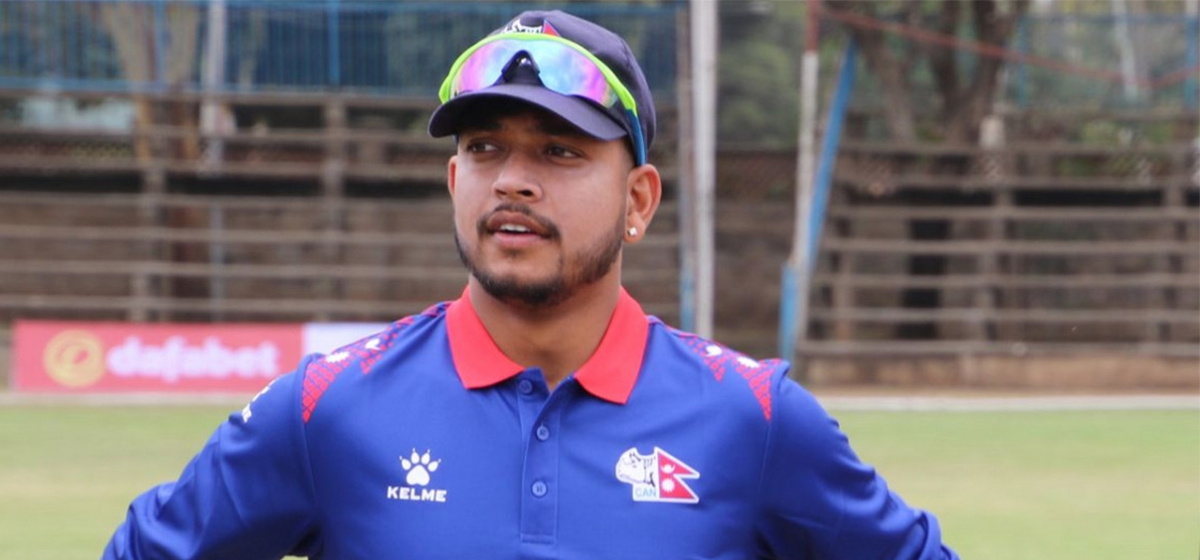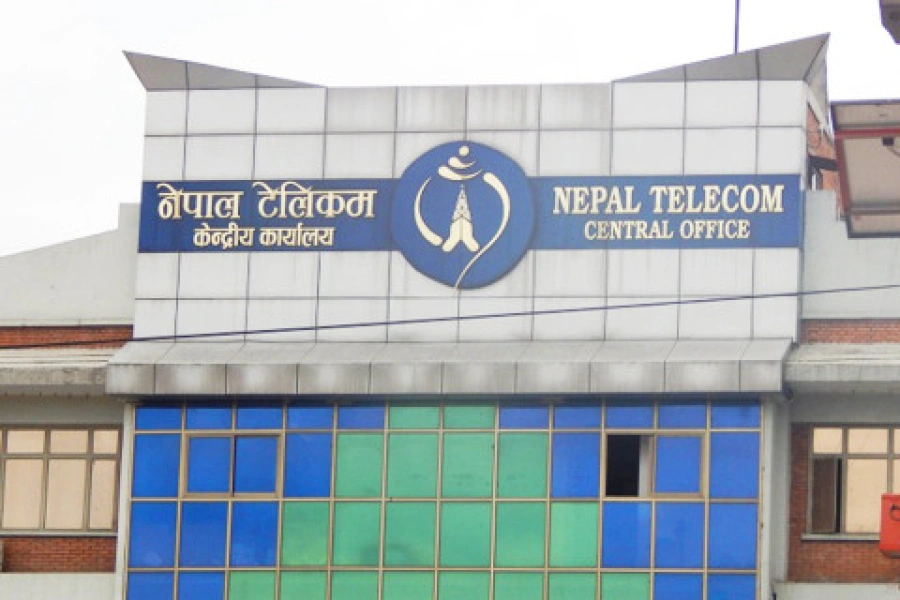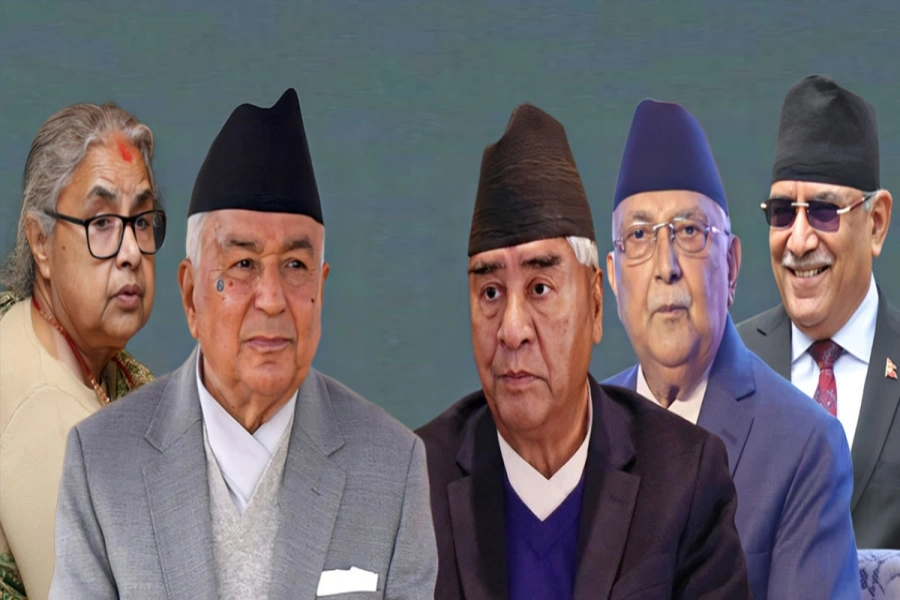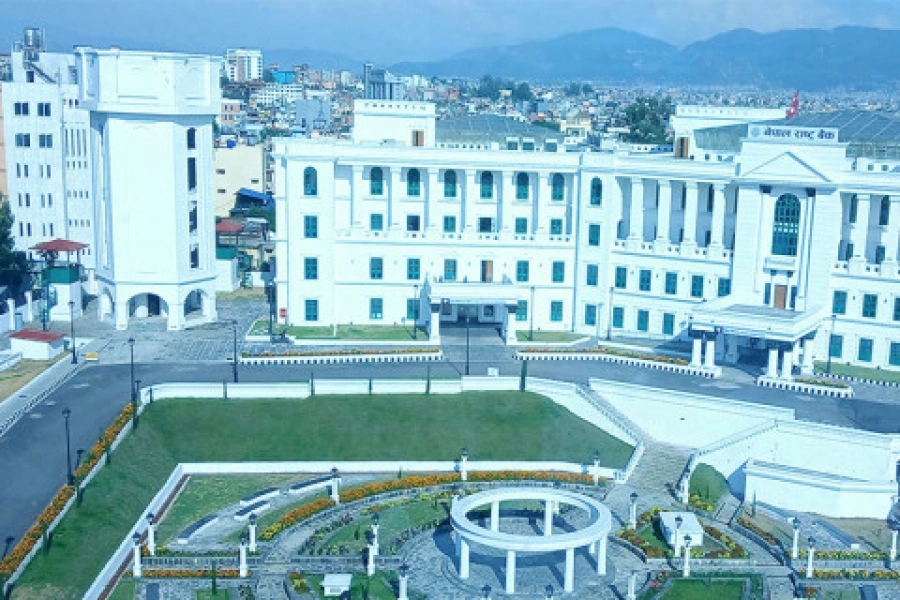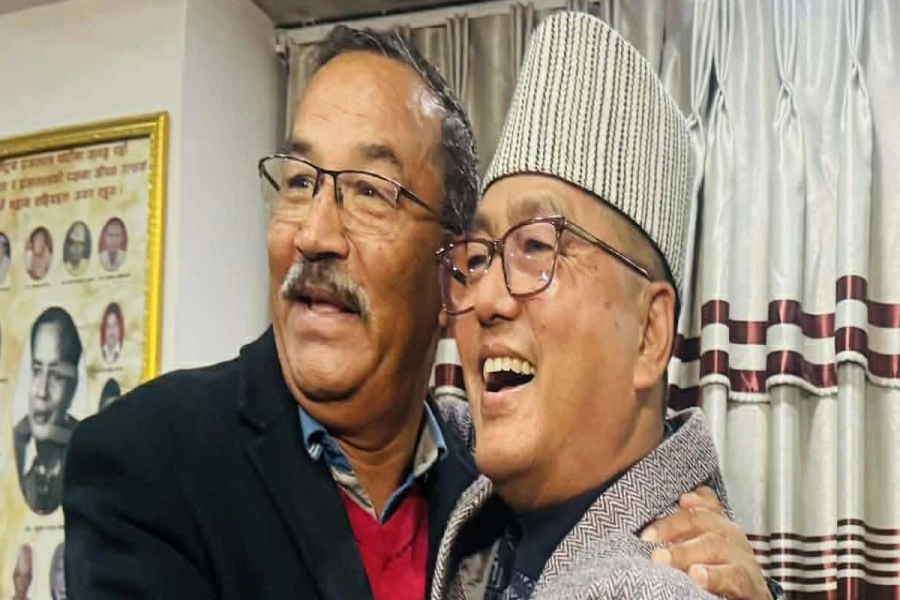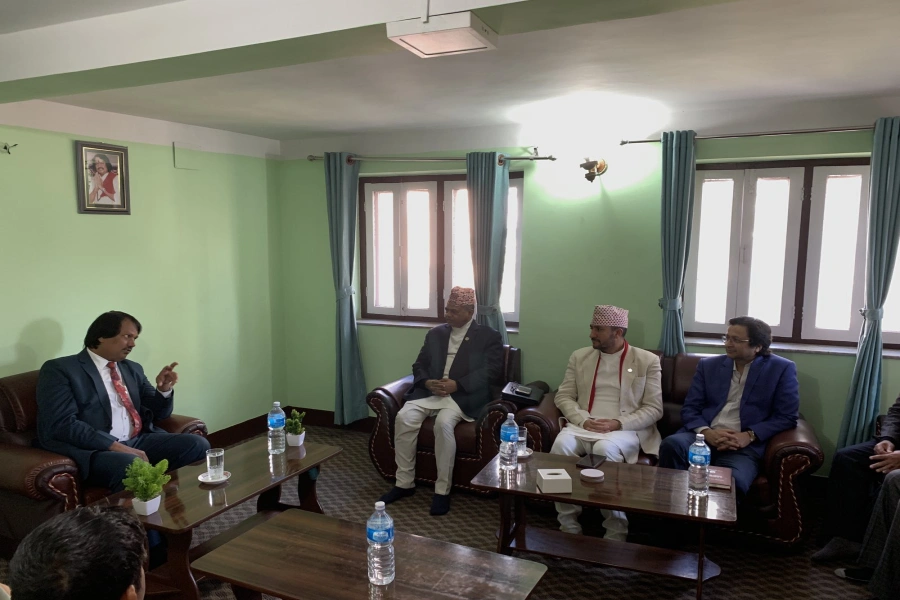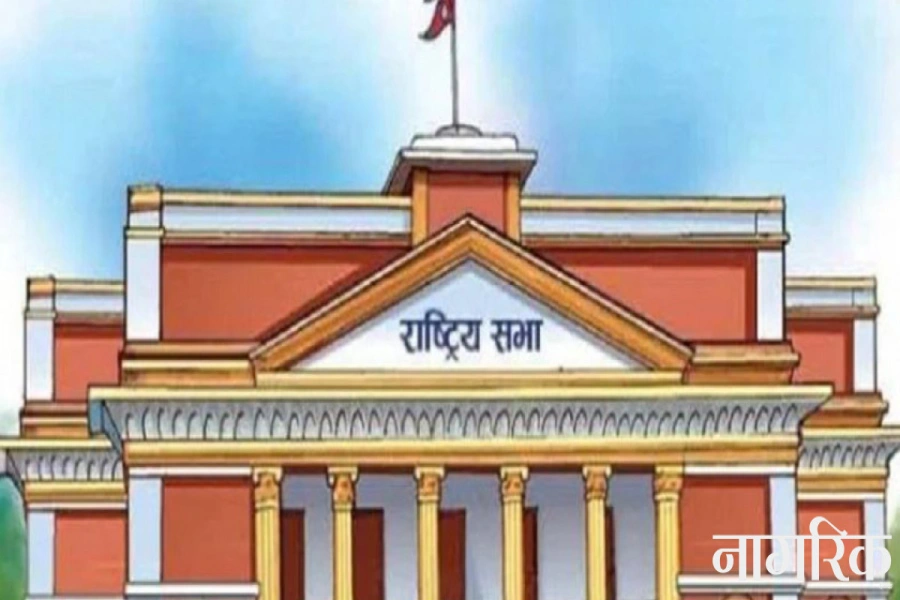One day, I met Mr. Amber Gurung for our occasional meetings on music and for bonhomie while back in town. I had left my college teaching job and worked for a Thai contractor building the Hetauda-Narayangarh Highway. I mentioned my novel to him.[break]
“It must be shown to Shanker Lamichhane,” Mr. Gurung said, out of the blue. “He has come back now.”
“Shanker Lamichhane?” I blurted out. “You must be joking, Sir! He’s such a giant. Do you think my work is worthy of his eyes?” It was unbelievable.
“Okay, if you’ve doubts, I shall first read your manuscript,” Mr. Gurung volunteered, another unexpected surprise. “If I like it, we’ll visit Shanker. He’s come back!”
When Mr. Gurung twice said that Shanker had “come back”, I thought he had gone somewhere, perhaps on a foreign tour, and recently returned to Nepal. Little did I know then that his simple statement had encyclopedic details:
That Shanker Lamichhane had “come back” to society he had strayed from for years. That he had left his first family – his wife Ratna Rai Lamichhane, his two grown up children, Deep and Shikha. That he had married Subarna, a Newar lady, and living in Patan, leaving the old house at Chhauni to Ratna Bhoujyu and the children. That he had been embroiled in a plagiarism controversy for an article published in Roop Rekha which was but a copy of a foreign piece on avant-garde. That he was unraveled by a vigilant reader called Kumudini, and Shanker had confessed to the said literary shoplifting. He even acknowledged that he did so for money, for he was penniless. He also declared that he would write no more. Period! Renunciation!! His life was in a shambles, and his world had turned upside down.
In retrospect, the overblown literary “chori” was just a lowbrow caper engineered by Lamichhane and Nagendra Sharma in which the former was caught, tarred and feathered while the latter is still scot-free. For full disclosure, Mr. Sharma is available on the sting operation the two conmen had mounted.
Slowly, however, Mr. Lamichhane had turned around to face life’s new music, to manage himself and his new family while reconciling with his previous one. It was the very juncture Mr. Gurung had mentioned by saying Shanker had “come back” which was from a hellhole he had created for himself. It was time, therefore, to rekindle him and his literary spirits by paying him a visit with my novel’s manuscript. He had also “come back” in another way: he had begun writing again. A recent story I had read then was “Aparichit Doctor” – proving that he was back to the old fold in all normal ways, including creative writing. He had reopened the very valves he had shut on himself. It was now his renaissance, a renewed event in Nepali literature, music, fine arts, and attendant refinements and sensibilities.
*****

Presently, Mr. Gurung informed me that he had read my novel, liked it, and mentioned some episodes that touched him.
“It’s fit enough for Shanker’s attention,” he said. He also traced his address in Kayonani of Patan.
It was my first encounter with Mr. Lamichhane on a serious undertaking. A natty dresser that he always was, he received us in a suit and tie in his rented apartment. Shanker and Amber themselves – greeting each other with “Hello, Old Man!” were meeting after a long time. After the initial repartee, the business of my manuscript began. Shanker Dai fingered the pages of my manuscript and blurted out:
“Look here, Peter Bhai: I’ll write something for you only if your novel is good enough. And I’ll write something lengthy and serious, not that kind which goes like “I read so-and-so’s book and I liked it and I wish the author a bright future in literature, signed by” – here he rattled off the names of Bal Krishna Sama, Madhav Prasad Ghimire, Bhawani Bhikchhu and others. “These people write those three-liners, which isn’t my cup of tea. Do you understand, Bhai?”
“I understand, Dai,” I said. “Nothing could be fairer. It’s a deal I like and accept.”
I had a half bottle of Jawlakhel Ruslan Vodka, for want of better beverages, that sunny but cold winter afternoon. We celebrated. But after hardly one “peg”, Shanker Dai laid himself down on the bed, curled like a fetus, turned to the wall, and fell asleep. He was still in his suit and tie. He lacked resistance to alcohol, I believe, and he always went to sleep while drinking – a true fact that belied the exaggerated notoriety in Kathmandu that he was a drunkard and an alcoholic. Nothing could be farther from the truth.
On the way back, Mr. Gurung fumed.
“Shanker shouldn’t have been so harsh and rude to you. If he doesn’t write that preface to your novel, I shall.”
“But Sir, he hasn’t read the novel; you have. So let’s give Shanker Dai the benefits of his doubts. He has set his precondition, and I appreciate that.”
Mr. Gurung was finally pacified by my logic. But how would I know then that the next session with Mr. Lamichhane would be even more shocking in both blessings and blasting emanating from his frank outspokenness.
*****
Once again, Mr. Gurung and I found ourselves with Shanker Dai when he summoned us. He congratulated me for a work which was better than what he had expected from a greenhorn novelist. He more or less addressed his opinions to Mr. Gurung who sat cross-legged like a meek student.
“Peter Bhai has done a tremendous job, Amber Old Man,” Shanker Dai started. “It’s as if there’s no place for the likes of Laxmi Prasad Devkota and Shanker Lamichhane in Nepali prose anymore. Listen to this, Old Man!”
Then he read from passages, paragraphs and chapters which had my “heavenly” language. “Wah-wah! What style, what expressions!!”
Then the lambasting began: “But what is this? Such ‘tilasmi’ narratives I haven’t read in my life. What a ‘gulbakawali’ way of writing you do, Peter Bhai! Listen to this, Amber Old Man.”
Then Mr. Lamichhane trashed me for those sections which were “jhoor” writing by all standards. It seemed there was no middle ground in my writing; it was either so lofty or utterly lowly, and that had left him flummoxed.
It was then there appeared Subarna Bhoujyu, Shanker Dai’s second wife. She had to intervene, and she chided me no end:
“You gave Shanker such headaches and sleepless nights. He was restless with ‘oohs,’ ‘oofs’ and ‘ahhs’ in the night. I ask him, ‘What’s wrong with you, Shanker?’ He just goes ‘oof!’ I massage his head, rub his shoulders. It’s no use. Finally, he says, ‘You know, Peter has written such lovely pages. Why didn’t I ever write like that? Wah-wah! But look at this, too – utter garbage, useless sentiments, trite writing. Ohhhhh!’ You’re to blame for making Shanker unwell and ecstatic for so many days and nights. What have you written, anyway? He’s happy one time, and the next minute he hits his forehead with his palm.”
Then she left the meeting, having delivered her piece.
Mr. Gurung and I sat stunned and speechless. I was complimented for those golden pages I had written, and condemned for those godforsaken ones. Shanker Dai read the best and the worst of my novel in so many places that I clearly knew what he really meant. Those inferior sections needed poetic justice was the true message of his uplifting and thrashing treatment of my work. His hands-on comparisons taught me so much that the guidelines were crystal clear to me to follow. It was a rare MFA workshop with lecture and demo I received that afternoon. Such live mentoring and editorial guidelines would be rare in the world, and I was the fortunate recipient of his unchecked and generous largesse.
Then Shanker Dai declared:
“Your novel has such potential, Peter Bhai, but you must rewrite or do away with those atrocious and outrageous parts. These sections are so inferior! In this, I’m game with you: Every time you submit your manuscript to me, I’ll read it. How many times would you do it? I shall read every submission you make. I’ll go the whole hog with you, you understand? I’m game with you!”
But I did not bother him with every copy I made of the novel. It was partly due to our own hectic schedules: he was making a new life with his second family while I myself was frequently out of Kathmandu. It took me another year to rewrite and reedit those hellishly hideous sections of the narrative. Mr. Lamichhane, to my great relief, had not critiqued the construct of my narrative; he had approved of the form and style, plot and subplots, dramas and melodramas, humor, satire, cast of characters, and other techniques. It was my language that had suffered so hopelessly in many parts, and these balderdashes had to be remedied.
Which I did, in my highway construction travels: at the USAID guesthouse in Bharatpur, at Milan Hotel in Khasyauli, in the lounge of Hotel Samjhana in Birgunj, in a guesthouse in Bhairahawa, in the lonely cubicle of my Kamal Pokhari apartment.
After five major and minor alterations of the entire manuscript, curing those sick segments, I visited Mr. Lamichhane one winter evening.
I preempted him by saying at the very outset, “Dai, whatever and however much I’ve done to the novel as per your guidelines, you won’t find any ‘sandesh’ in this yet wretched final result. It’s futile for you to expect and find anything worthy. And I won’t do anything more to it. I’m fed up and tired. Enough is enough!”
Mr. Lamichhane looked me in the eye in the dim light of the dusk. “What ‘sandesh’ are you talking about? Are we trying to be clever here? Well, it’s the readers who are more discerning and intelligent these days. Let me read your final version, and let’s leave the rest to the readers for the novel’s ‘message’, alright?”
*****
Two weeks later, I was summoned to Mr. Gurung’s place at Gyaneshwor. Mr. Lamichhane had arrived. He showed me the preface to my novel! “Thik chha, aba yo hunchha,” he said about my novel, approving of my final cut. Hence, he had written his “bhoomika” to it. He somberly read it to Mr. Gurung and me. After folding the write-up and giving it to me along with the master copy of my novel’s manuscript, he said, stretching out his hand:
“Where’s my payment? Pay me! A writer mustn’t write for free. That’s been my motto.”
Since I lived in nearby Kamal Pokhari, I was casually dressed for the visit and had left my wallet at home. I fished out a red one-Rupee note from my trouser pocket and offered it to him with both hands. He looked at it, as if it was a billion-dollar banknote, folded it lovingly and put it in his inner jacket pocket.
But his foreword to the novel drew flaks – from his own close friends, such as the late Bhim Darshan Roka and Tulsi Nath Dhungel, as well as Uttam Nepali, among others. In fact, Messrs Dhungel and Nepali dragged Mr. Lamichhane to my place one evening to decide to have the preface rewritten.
“It’s a great piece, Shanker, no doubt whatsoever,” declared Mr. Dhungel, “but it’s not suitable for a novel like “Pratyek Thhaun: Pratyek Manchhe.” Period! No more arguments, hai!”
Mr. Nepali, who was to design the cover of the book, approved of Mr. Dhungel’s bullying by his silence. Nobody, however, reasoned out why Mr. Lamichhane’s preface, which I cherished, was not at par with the novel. No one asked, least of all I, and no one explained. Finally, Mr. Lamichhane agreed to write another foreword.
Before he left, Mr. Lamichhane suggested that I submit the manuscript of “Pratyek” to the Royal Nepal Academy “so they may discover a new writer like you, to their credits.” He also told me to wait no more than a fortnight for the Academy’s decision, and reclaim the copy in case of delay. In the meantime, he would write the new foreword to the novel.
The last time I met Shanker Dai at Hotel Shanker, where he was a senior accountant, was to inform him of my failure at the Academy. This made him sad. We walked together to the western gate of Narayanhiti, and parted. He walked straight on the Kanti Path while I turned left to Durbar Marg.
Then I learnt that he had contracted meningitis. He passed away sometime later. Needless to say, there was no second preface to my novel. And the original was the last literary piece written by Mr. Shanker Lamichhane.
Karthak’s novel in Nepali, “Pratyek Thhaun: Pratyek Manchhe”, has been reprinted by FinePrint. An enhanced version of the novel in English is “EveryPlace: EveryPerson” (Vajra Books).
Judge Shankar Rai to conduct final hearing on the case against...
